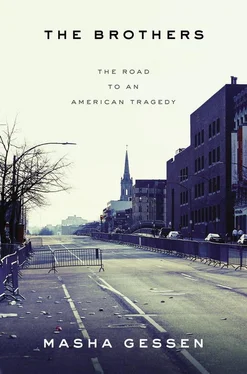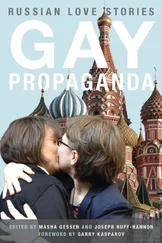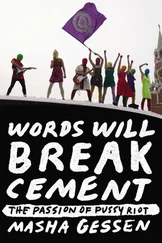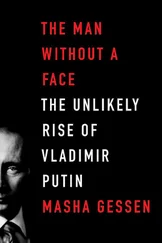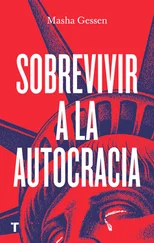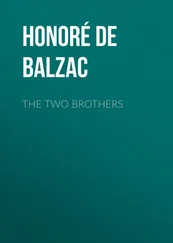Anzor was making a living, but, as long as his business was conducted one car at a time, the family would never be rich. In 1992, they moved again.
• • •
BY THIS TIME,Chechnya seemed as close to a promised land as it had ever been. It now had its own president, the wildly popular Dzhokhar Dudaev, a pilot, the only Chechen ever to have reached the rank of general in the Soviet military. He was assimilated and worldly, married to a Russian woman and serving in Estonia when the Soviet Union began to break apart. He resigned from the air force and returned to Chechnya to take the helm. The new Russian president, Boris Yeltsin, was a vocal believer in ethnic self-determination who had once famously told minorities to “take as much sovereignty as you can carry.” Once Gorbachev was toppled, Yeltsin facilitated the peaceful divorce of the republics that had constituted the Soviet Union: Kyrgyzstan and Kazakhstan, where most Chechens, including Dudaev, had spent at least a part of their childhoods, were now independent countries. Chechnya remained among the eighty-nine republics and regions that made up the newly constituted Russian Federation (a number that would shrink as a few of them combined over the coming years). Of these, Chechnya would be the only one to have the courage of its convictions and claim independence.
Anzor, Zubeidat, and their three children moved to Chechnya, to the house Zayndy had been building in Chiry-Yurt. There were cars to be fixed here, too, so Anzor was busy. Zubeidat was pregnant with their fourth child. When the boy was born in July 1993, they named him Dzhokhar, for the republic’s heroic president.
Chechnya had everything it needed to succeed on its own: international borders and easy trading routes with such potential partners as Turkey and Azerbaijan; oil, which it now planned to keep instead of shipping for processing to other parts of Russia; and the will to prosper once it was finally free, after nearly two centuries of the Russian yoke. The only thing it lacked was Moscow’s consent to let it go. When Yeltsin talked about sovereignty, he had apparently meant other Soviet republics, like Kyrgyzstan or Ukraine, not the ones inside Russia. The prospect of one of the eighty-nine regions breaking off and starting a chain reaction was unacceptable. Indeed, Moscow needed to nip such independence movements to prevent further ones. Cracking down on Chechnya would be a popular move—most Russian citizens remained deeply prejudiced against Chechens—and would send a strong message to other regions with pro-independence movements.
Moscow imposed an economic blockade of Chechnya. When that failed to bring it back into the Russian fold, Yeltsin’s government reached for other measures. In the summer of 1994, unmarked planes began flying low over Chechen towns and villages, firing at random and dropping a few bombs. Kremlin spokespeople blamed those attacks on Azerbaijan, without bothering to explain why Chechnya’s southern neighbor would suddenly take to bombing it. These were Moscow’s warning shots, which, unsurprisingly, served only to mobilize the Chechens in support of independence.
In December 1994, Russian troops amassed on the border with Chechnya. On New Year’s Eve, Russian planes bombed Grozny so hard an international expert soon compared it to Dresden. By this time, Anzor, Zubeidat, and their four children were in a battered Škoda, driving to Kyrgyzstan. They might not have learned to pick their destinations, but, with moving as their solution to everything, they did know when it was time to get out.
Three
DREAMING OF AMERICA
Tamerlan’s grade-school teacher Natalya Kurochkina told me that the boy was afraid of fireworks, presumably because he had been terrified by the bombing of Chechnya. Badrudi Tsokaev, Anzor’s Tokmok friend and neighbor, told me that the rear right door of the Škoda in which Anzor brought his family back from Chechnya at the end of 1994 resembled a sieve from having been shot up by a machine gun—though it is not clear whether this had been Anzor’s car at the time of the shooting or someone else’s vehicle that he acquired later, since he had the skills required to repair it. Years later, in America, Anzor appears to have blamed the pains and worries that plagued him on the trauma wrought by war. On the other hand, his cousin Jamal, the one who had stepped into the father role after Zayndy died, told me with some resentment that, unlike him, neither Anzor nor Tamerlan had lived in Chechnya during the war. This was true: they left at the very beginning, and things got so very much worse after that. The Tsarnaevs never had to zigzag on foot along a road for miles, trying to avoid stepping on dead bodies. None of them ever saw a drunk Russian soldier stumble through the doorway of their house and shoot someone they loved. None of them had a friend or relative die in their arms, the warm smell of his blood sticking to their clothes, their hair, their skin forevermore. As a family, they never endured the ordeal to which virtually every family in Chechnya was subjected: that of searching and waiting for a male relative who had disappeared.
Of all the experiences of war, the Tsarnaevs were fully exposed only to one—fear. Unlike the people who stayed in Chechnya, they never learned to normalize war. Reporting on the war in 1994–1996 and in 2000, I saw women in Chechnya who for months cooked family meals on open fires on city sidewalks. I saw children who did not remember ever having set foot outside their apartments and who could not sleep without the sound of artillery fire. I saw young women who had mastered the care and handling of Russian soldiers and knew that if they ever failed, their family members would pay with their lives. The Tsarnaevs simply ran for their lives. Who is to say this leaves a lesser scar?
Over the next two years, as the Russian army continued to pummel Chechnya, refugees from the war streamed into Kazakh and Kyrgyz towns where they had family. Some said they needed protection from the rebels; others said they were the rebels and needed protection all the more. They brought fear, and they brought guns, and they were not always welcome. “We are practically natives here,” Ruslan Zakriev, the cowboy-hat-wearing self-appointed leader of the Tokmok Chechens, told me. “We didn’t want any trouble.” And when trouble came—as when shoot-outs began on the Chechen streets of Tokmok and Bishkek—they blamed it on the new Chechnya. Anzor and Zubeidat confirmed: The new Chechnya was not a place for living. Anzor said he had sold the house his father had been building in the village of Chiry-Yurt. They would not be going back.
Anzor and Zubeidat together took Tamerlan to Tokmok’s School Number Two to sign him up for first grade. It was the middle of the school year, but the other children accepted him quickly and uncritically because Natalya Kurochkina told them that this boy was running from the war. “We talked a lot about the war then,” she remembered almost twenty years later. “There were kids coming to the school who had lost fathers there.” Aside from a conspicuous fear of fireworks, which may be too handy a foreshadowing to be fully believed, Tamerlan stood out only for the best of all possible reasons. He was an exemplary child, polite to a fault and often speaking caringly about his younger sisters and brother.
Zubeidat’s project of rearing perfect children remained on track. She was an overachieving stay-at-home mother while Anzor continued to fix cars. When he came to school, however, he wore a suit; the teachers perceived them as a white-collar couple who were seeking the best possible education for their children. Tokmok’s best, however, was not nearly as rigorous, challenging, or ambitious as Zubeidat wanted it to be. At the end of second grade Zubeidat withdrew Tamerlan from the school. Here the trail goes cold for two years, but in 1999 Tamerlan was enrolled in fifth grade at Tokmok’s Pushkin Gymnasium School Number One. “We got prestigious that year,” the principal explained to me.
Читать дальше
